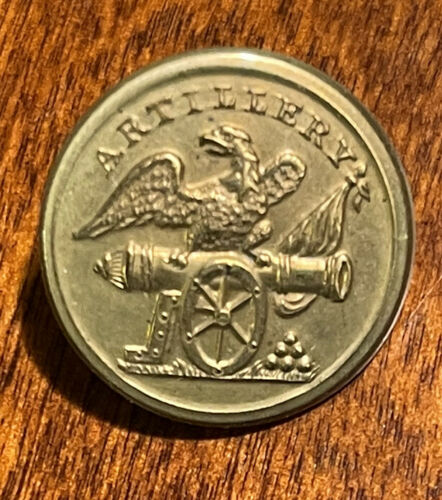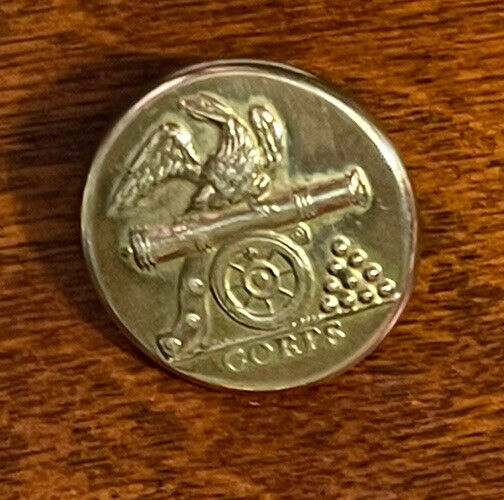-40%
WAR OF 1812 COLONEL MD TROOPS PRO-SLAVERY GOVERNOR VEAZEY DOCUMENT SIGNED 1838!
$ 5.27
- Description
- Size Guide
Description
THOMAS WARD VEAZEY(1774-1842)
PRO- SLAVERY, ANTI-ABOLITIONIST GOVERNOR OF MARYLAND 1836-1839,
MEMBER OF THE MARYLAND HOUSE OF DELEGATES 1811-1812
WAR OF 1812 COLONEL OF MARYLAND TROOPS, COMMANDING FORCES WHICH DEFENDED FREDERICKTOWN IN CECIL COUNTY
&
WAR OF 1812 LIEUTENANT-COLONEL OF THE FORTY-NINTH MARYLAND REGIMENT.
As Governor, Veazey vehemently and firmly believed in the institution of slavery!
In his annual message of December 1836, he refused to believe that the Federal government would infringe upon the rights of the states in which slavery then existed.
Veazey also had no use for abolitionists
, whom he termed
'misguided and fanatical individuals
.' He looked down upon their emancipation efforts and felt
'confident that many of the most intemperate and noisy declaimers upon the subject, are influenced by very different motives
.' Instead, he felt that Maryland’s colonization plan 'appeared to be that which is best suited to the constitution of the slaveholding States of the Union. “…
there is now in prosperous existence on the coast of Africa, under the separate control of the State Colonization Society, appropriated to the use of emigrants from Maryland and are now capable of receiving any number of [former slaves] that may be prepared to emigrate
…”
<
<>
>
HERE'S A RARE DOCUMENT SIGNED BY VEAZEY AS GOVERNOR OF MARYLAND, dated Feb. 14, 1838, appointing Jacob Thomas, Patrick McGill, and William Lynch as District Justices in Frederick County.
The document is also signed by THEODORICK BLAND (1776-1846), an American Lawyer, Statesman, Federal Judge, Consul to Brazil appointed by President Monroe, and Chancellor of Maryland under 10 Governors!
A RARE PIECE OF EARLY 19th CENTURY MARYLAND POLTITICAL HISTORY TO ADD TO YOUR AUTOGRAPH, MANUSCRIPT & EPHEMERA COLLECTION!
NICELY SIGNED BY VEAZEY!
The document bears a blind-embossed executive seal, measures 16½” x 11" and is in very fine condition, for its advanced age!
<<>
::<
>>
BIOGRAPHICAL SKETCH OF THE HONORABLE
THOMAS WARD VEAZEY
Thomas Ward Veazey
, (Jan. 31, 1774 - July 1, 1842), governor of Maryland, was descended from John Veazey, who emigrated from England to Maryland in the latter half of the seventeenth century. In what became Cecil County he acquired a plantation, "Cherry Grove," which remained in the family for many generations. Here was born Thomas Ward, the
son of Edward Veazey (44), a planter who was also high sheriff of Cecil County from 1751
to 1753, and of Elizabeth (De Coursey) of Queen Anne County. After graduating from Washington College, Chestertown, Md., in 1795, Veazey became a planter at "Cherry Grove."
He was interested in politics, however, and in 1808 and 1812 was chosen presidential elector, voting for James Madison. In 1811 and again in 1812 he was elected to the Maryland House of Delegates; but he left it to become a lieutenant-colonel of Maryland troops in the War of 1812. From 1833 to 1835 he served on the council of Gov. James Thomas. In January 1836, he was elected on the Whig ticket to succeed Thomas, and was reelected in the two years following.
His first term was troubled by strife over the state constitution. At that time Maryland was a mere federation of counties and cities in which the majority of the population could be dominated in the legislature by the minority. The state Senate was chosen by an electoral college. In the voting of 1836 for these electors, nineteen Democrats were chosen to represent districts totaling more than 200,000 population, whereas twenty-one Whigs represented less than half that number. Bent upon remedying this state of affairs, the Democratic electors asked the Whigs to agree in advance to choose a majority of men who favored constitutional reform; when the Whig electors refused, the Democrats left for home instead of going into session to elect senators. Veazey met the situation courageously, announcing that the old Senate would continue to function until a new one was legally elected; and he called upon the existing senators to assemble for duty.
Public opinion supported the Governor, and the recusant electors returned to Annapolis and cooperated in electing a new Senate. Following up this moral victory, Veazey recommended constitutional reform in his message of Nov. 25, 1836, and the episode resulted in the adoption of a series of amendments amounting practically to a new instrument of government.
His other policies were also, in general, wise and progressive. He urged a registration law to prevent fraud in elections; he stood for sound financial methods; he encouraged internal improvements, especially the completion of the Chesapeake & Ohio Canal and the Baltimore & Ohio Railroad; and he recommended repeatedly the reorganization and expansion of the educational system with the aim of making it general and public. Owner of many slaves, he was hostile to abolitionist meddling from outside the state, but he favored the work of the American Colonization Society.
He was three times married: on Nov. 18, 1794, to Sarah Worrell of Kent County, Md., who died in 1795, leaving an infant daughter who did not survive childhood; on Mar. 29, 1798, to Mary Veazey, a cousin and daughter of William Veazey (74) and Mary Loutit, who bore him five children; and on Sept. 24, 1812, to Mary Wallace of Elkton, Md., who also bore him five children. He spent his last years at "Cherry Grove" and died at age 69.
<<
::
>>
BIOGRAPHICAL SKETCH OF THE HONORABLE
THEODORICK BLAND
Theodorick Bland
served in a number of private and public positions throughout his career, advancing rapidly in Maryland politics.
In his early adulthood he traveled through Virginia and Kentucky as an attorney, but by 1808 he was serving Baltimore City as an elected State Legislator in a special session of the House of Delegates.
By 1812, Bland was an Associate Judge of the Sixth Judicial District, serving until 1817, when he was commissioned by President James Monroe to serve as the Consul to Brazil.
At the top of his profession by 1824, Bland became the Chancellor of Maryland, the highest paying judicial post in Maryland at that time, and one he would occupy under ten Governors, resigning just shortly before his death in 1846.
I am a proud member of the Universal Autograph Collectors Club (UACC), The Ephemera Society of America, the Manuscript Society and the American Political Items Collectors (APIC) (member name: John Lissandrello). I subscribe to each organizations' code of ethics and authenticity is guaranteed. ~Providing quality service and historical memorabilia online for over 20 years.~
WE ONLY SELL GENUINE ITEMS, i.e., NO REPRODUCTIONS, FAKES OR COPIES!












